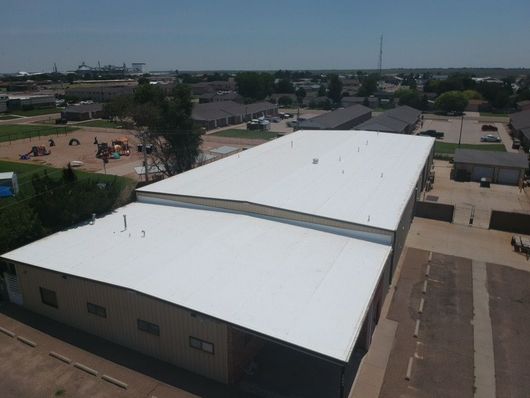When it comes to your business property, the roof is one of the most important aspects to consider. Not only does it protect your building from the elements, but a strong, durable roof can save you significant repair costs and even improve energy efficiency. In this guide, we’ll explore the best materials for commercial roofing and why investing in quality roofing is essential for long-term success.
How to Identify Your Commercial Roofing Needs
Commercial roofs have unique requirements compared to residential roofs. Factors such as climate, building type, and business operations play a major role in determining the best roofing system. Whether you’re managing a warehouse, office, or retail space, identifying your specific needs will help you select the right roof for your property.
Choosing the Right Materials for Your Commercial Roof
There are a few top roofing materials commonly used for commercial properties. Each comes with its unique advantages, depending on your needs and budget.
1. Metal Roofing
Metal roofing is highly favored for commercial properties because of its long-lasting durability and energy-saving features. Available in materials such as steel or aluminum, metal roofs can handle extreme weather and provide excellent leak protection. Plus, their reflective surface can reduce cooling costs during the hotter months.
Second Choice: Flat Roofs
Many commercial properties use flat roofs due to their cost-efficiency and easy installation. Flat roofs are especially well-suited for modern buildings, with materials like TPO, EPDM, and PVC offering excellent waterproofing and insulation. Regular maintenance and good drainage practices help extend their lifespan.
Shingle Roofs for Commercial Properties
While less common for large commercial buildings, shingle roofing can be an excellent choice for smaller commercial structures or buildings that require a more traditional aesthetic. Asphalt shingles are affordable, easy to install, and available in a variety of styles and colors, though they may not offer the same long-term durability as metal or flat roofs.
Roof Installation: Best Practices and Maintenance Tips
After selecting the right roofing material, the next step is installation. It’s essential to hire an experienced and licensed roofing contractor to ensure proper installation. This will help prevent leaks and ensure your roof lasts as long as possible.
Regular maintenance is also essential. Inspections should be done at least twice a year, especially after harsh weather events. Look for signs of damage, such as missing shingles, cracks, or pooling water. Cleaning gutters and removing debris can also prevent long-term damage and extend the life of your commercial roof.

Why Investing in Quality Roofing Protects Your Business
A good-quality roof is a sound investment. It offers protection from leaks that can cause expensive damage to your building and inventory. It also boosts energy efficiency, making your property more sustainable and lowering costs. A well-maintained roof can even increase your building's value and prevent costly repairs in the future.
Final Thoughts: Selecting the Best Commercial Roofer
Selecting the right roofing contractor is crucial to ensuring your roof is installed correctly. Choose a licensed and experienced professional who specializes in commercial properties and can help you choose the best material. A good roofer will also assist you with the installation and ongoing maintenance to keep your roof in optimal condition.
Thinking about upgrading your commercial roof? Get in touch with us today for a free consultation, and let us guide you through the best roofing options for your property.
#CommercialRoofing #RoofingMaterials #BusinessProtection #MetalRoofing #FlatRoofing #RoofInstallation #EnergyEfficiency #RoofMaintenance